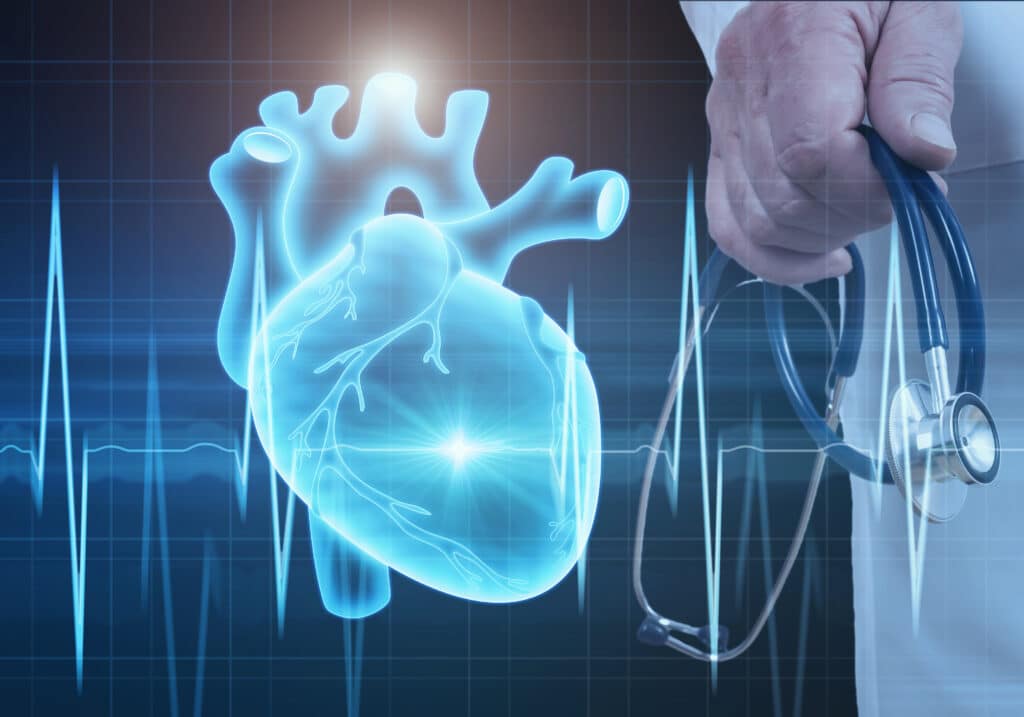How to elevate your heart health with Cardiology care
Understanding the Importance of Cardiology in Modern Medical Care Services
Cardiology plays an important role in contemporary medical care, especially as heart problem continues to be the leading reason for mortality worldwide. Advances in diagnostics and therapy have actually changed patient care, enabling earlier interventions and improved end results. In addition, the change towards precautionary cardiology encourages individuals to handle their health proactively. As innovation remains to evolve, the combination of ingenious options might better redefine cardiology's effect on public health, motivating a closer evaluation of arising fads and their implications.
The Occurrence of Heart Illness and Its Effect On Public Health
Heart illness remains the leading cause of death globally, its impact extends much past private patients to influence public wellness systems and economic situations. The high occurrence of heart problem places a significant pressure on healthcare resources, requiring increased financing for therapy, avoidance, and recovery programs. Public health and wellness campaigns need to deal with threat variables such as excessive weight, cigarette smoking, and less active lifestyles, which contribute significantly to the rising occurrence of heart conditions.Moreover, the financial burden connected with cardiovascular disease is enormous, encompassing not only straight medical costs however also indirect expenditures connected to shed efficiency and early death. Neighborhoods face obstacles in managing these prices, frequently causing disparities in medical care access and end results. As the population ages and lifestyle-related risks continue to escalate, the necessity for efficient cardiology treatments becomes vital. As a result, attending to heart problem is not only a matter of specific health and wellness but also a critical public wellness priority.
Developments in Cardiac Diagnostics and Imaging Techniques
Recent improvements in cardiac diagnostics and imaging techniques have reinvented the field of cardiology, improving the capability to discover and check heart problem. Strategies such as cardiac MRI, CT angiography, and echocardiography have actually become significantly advanced, supplying in-depth pictures of cardiac frameworks and features. These modalities permit the early identification of problems like coronary artery condition, heart failure, and valvular disorders.Moreover, advancements in non-invasive diagnostics, such as wearable innovation and remote surveillance devices, have equipped patients and medical care providers. These devices assist in real-time monitoring of heart rhythms and other necessary signs, resulting in prompt interventions. In addition, fabricated intelligence is being incorporated into imaging evaluation, improving precision and effectiveness in diagnosis.
Advancements in Treatment Options for Heart Issues
Recent advancements in cardiology have actually caused significant innovations in therapy alternatives for heart disease. These include innovative medical techniques that improve step-by-step outcomes and emerging drugs that provide brand-new avenues for treatment. As the field advances, these developments play a vital duty in enhancing person treatment and outcomes.
Advanced Surgical Techniques
Technologies in surgical methods have transformed the landscape of cardiology, offering brand-new expect individuals with heart conditions. Minimally intrusive procedures, such as catheter-based interventions, have considerably minimized recuperation times and healthcare facility stays. Methods like robotic-assisted surgical procedure boost accuracy, permitting surgeons to navigate intricate anatomical structures with better accuracy. Developments in imaging innovation promote real-time visualization during procedures, enhancing end results. Transcatheter aortic shutoff replacement (TAVR) exhibits a breakthrough in dealing with aortic stenosis, enabling shutoff substitute without open-heart surgery. In addition, hybrid methods that combine surgical and catheter-based techniques supply customized solutions for different cardiac concerns. These sophisticated surgical methods not only boost person security but additionally expand treatment options, emphasizing the essential function of advancement in modern-day cardiology practices.
Arising Treatments and drugs
As the landscape of cardiology continues to develop, emerging drugs and treatments play a pivotal function in enhancing treatment choices for heart disease. Innovations such as unique anticoagulants and progressed lipid-lowering agents have actually transformed the management of cardiovascular illness, significantly minimizing individual morbidity and mortality. Furthermore, the growth of gene therapies and regenerative medication uses encouraging avenues for treating conditions formerly deemed irreversible. Clinical tests are constantly exposing the efficacy of these treatments, pushing the borders of conventional therapies. The integration of digital wellness technologies helps with customized medicine, permitting for tailored therapy strategies based on genetic and way of living variables. Collectively, these advancements emphasize the dynamic nature of cardiology, improving person end results and redefining criteria of treatment in modern-day medical care.
The Function of Preventive Cardiology in Individual Treatment
Precautionary cardiology plays a crucial function in client care by concentrating on the identification of danger aspects that add to cardiovascular disease. With way of life adjustment methods and early detection techniques, doctor can properly minimize the incidence of cardiovascular events - Cardiology. This positive method not just boosts person results yet likewise promotes long-lasting health and wellness
Danger Factor Recognition
While heart diseases remain a leading root cause of morbidity and death worldwide, effective risk variable identification functions as a keystone of preventative cardiology. Identifying threat elements such as high blood pressure, diabetes mellitus, hyperlipidemia, and household background is necessary for very early treatment. Healthcare experts utilize different evaluating approaches to evaluate these factors, enabling for customized safety nets. Additionally, comprehending an individual's lifestyle selections, such as cigarette smoking and physical inactivity, better notifies threat evaluations. This detailed analysis enables medical professionals to establish tailored care plans aimed at mitigating risks. By focusing on danger factor identification, healthcare systems can enhance individual outcomes and lower the general concern of cardiovascular conditions, eventually adding to improved public health and wellness techniques and source appropriation.
Lifestyle Alteration Approaches
A wide range of research studies highlights the important function of lifestyle adjustment strategies in lowering important site cardiovascular condition risk. These methods encompass nutritional changes, boosted exercise, smoking cessation, and weight management. By embracing a heart-healthy diet plan abundant in fruits, veggies, entire grains, and lean healthy proteins, people can lower cholesterol levels and high blood pressure. Normal exercise strengthens the heart and enhances general cardio wellness. Furthermore, stopping smoking substantially decreases the threat of heart problem and improves recuperation rates for those with existing problems. Weight management even more adds to cardio health and wellness by reducing other danger aspects such as diabetes and high blood pressure. Carrying out these lifestyle alters not only advertises private health yet also works as a foundation of precautionary cardiology in person care.
Very Early Detection Strategies
Lifestyle adjustments substantially add to reducing heart disease dangers, but they are most efficient when coupled with very early discovery methods. Preventive cardiology highlights the relevance of determining prospective heart problems before they escalate right into significant problems. Strategies such as blood pressure tracking, cholesterol testing, and progressed imaging modern technologies like echocardiograms play vital functions in evaluating cardiovascular wellness. Biomarkers and hereditary testing also improve the accuracy of very early detection, permitting for customized preventative strategies. Routine cardiac danger evaluations encourage doctor to step in proactively, potentially avoiding heart attacks and strokes (Cardiology care). By integrating these early detection methods right into regular treatment, people can profit from timely lifestyle treatments and targeted treatments, inevitably boosting results and improving lifestyle
Integrating Innovation Into Cardiology Practices
As advancements in innovation remain to improve numerous fields, the integration of ingenious devices and systems right into cardiology methods has actually come to be crucial for improving person treatment and outcomes. Telemedicine systems allow cardiologists to check clients from another location, enhancing accessibility to care while lowering the concern on healthcare centers. Wearable devices, such as smartwatches, make it possible for continual heart rate monitoring, notifying both doctors and people to possible concerns in real-time. In addition, synthetic knowledge (AI) is being used to analyze large quantities of heart information, helping in very early diagnosis and tailored treatment plans. Advanced imaging techniques, including 3D echocardiography, improve visualization of heart frameworks, causing more accurate treatments. Digital health documents (EHRs) enhance patient details administration, guaranteeing that cardiologists have prompt access to crucial information. Together, these technical advancements are transforming cardiology, promoting aggressive management and enhanced health and wellness outcomes for people with cardio conditions.
The Importance of Individual Education And Learning and Engagement
Person education and learning and involvement play a crucial function in the management of cardiovascular wellness. By equipping clients with expertise about their conditions, therapy alternatives, and way of living adjustments, health care providers empower individuals to take an active duty in their treatment. This proactive method can lead to improved adherence to prescribed medicines, nutritional adjustments, and workout programs, eventually minimizing the threat of complications.Engagement also fosters a strong patient-provider relationship, encouraging open interaction and trust fund. When people feel informed and entailed, they are more probable to voice worries and ask concerns, which can result in far better professional results. In addition, educational resources, such as workshops or digital platforms, can boost understanding and promote self-management strategies. In general, focusing on patient education and engagement is vital for improving cardiovascular wellness, improving lifestyle, and decreasing health care expenses connected with cardio conditions.
Future Fads in Cardiology and Their Possible Influence

Frequently Asked Questions
What Lifestyle Adjustments Can Lower Heart Problem Risk?
The present inquiry addresses lifestyle adjustments that can substantially reduce cardiovascular disease risk. Cardiology care. Taking on a balanced diet, engaging in normal exercise, preserving a healthy weight, taking care of anxiety, and staying clear of cigarette can notably improve cardio health and wellness
Just How Can I Identify Early Signs of Heart Issues?
Acknowledging very early signs of heart issues entails monitoring signs and symptoms such as chest discomfort, shortness of breath, fatigue, and uneven heart beat. Timely understanding of these signs can motivate needed medical evaluation and intervention for much better end results.
What Are the Distinctions In Between Cardiologists and Heart Surgeons?
The distinctions in between cardiologists and heart surgeons hinge on their roles; cardiologists largely identify and take care of heart disease via non-invasive methods, while heart doctors perform operations to deal with architectural heart problems. Each plays an essential, unique function.

How Often Should I Get My Heart Health And Wellness Checked?
The regularity of heart checkup varies based on private risk elements. Typically, grownups need to undergo analyses every one to 2 years, while those with status quo might require more frequent assessments as encouraged by medical care specialists.
What Role Does Genes Play in Cardiovascular Disease Risk?
Genetics considerably influences heart problem danger, with familial patterns showing acquired problems. Details genes can predispose individuals to hypertension, cholesterol issues, and various other cardiovascular problems, highlighting the value of hereditary screening in reviewing heart health and wellness. Heart disease remains the leading cause of fatality around the world, its influence extends far beyond private clients to affect public health systems and economic climates. Public wellness campaigns should resolve risk factors such as obesity, smoking cigarettes, and less active way of lives, which add substantially to the climbing incidence of heart conditions.Moreover, the economic worry associated with heart illness is tremendous, including not just straight medical costs yet additionally indirect expenditures connected to lost productivity and early mortality. Preventive cardiology plays a vital duty in person treatment by concentrating on the identification of risk factors that add to heart illness. Go Here Man-made knowledge (AI) and maker learning are boosting diagnostics and patient tracking, making it possible for very early discovery of heart diseases. The differences in between cardiologists and cardiac doctors exist in their roles; cardiologists largely detect and take care of heart conditions via non-invasive methods, while heart specialists do surgical procedures to correct architectural heart issues.